
To be listed on the haciendadelalamo TODAY MAP please call +34 968 018 268.
article_detail
Spanish News Today Editors Roundup Weekly Bulletin Jan 24
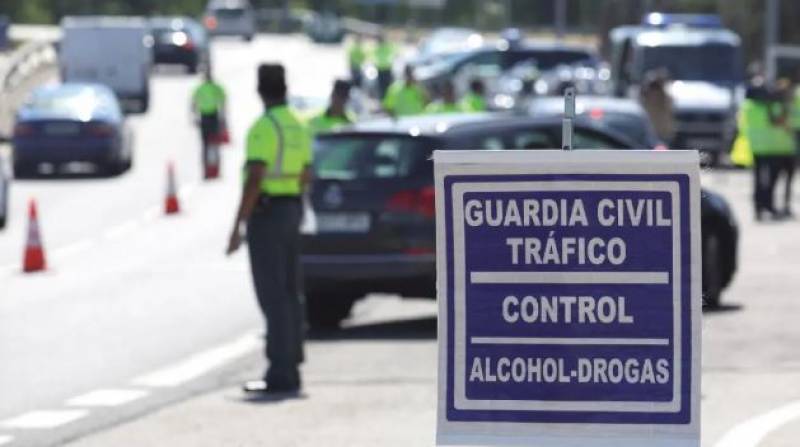
TOP STORIES: "Spain introduces several new driving laws for 2025" & "No more transport discounts and pensions won't rise as promised"
The eyes of the world were on Washington D.C. this week, mainly commenting on Melania’s choice of outfit, Musk’s Nazi salute and Zuckerberg looking at Bezos’s girlfriend’s breasts. But here in Spain there was added tomfoolery when Trump seemed to think Spain was one of the BRICS country developing economies (they are actually Brazil, Russia, India, China and Spain South Africa) and said that he’d be putting 100% duty tariffs on Spain-US trade. Along with other outlandish, unworkable and unconstitutional soundbites he came out with this week.
But Spain has enough to be worried about with its own changes to law and lifestyle to bother with a little thing like Trump. The long-touted government measures that were supposed to increase payment pensions, raise the minimum wage and ensure the continuation of those lovely discounts on bus and train travel that so many of us have become so used to were all – at the last minute – suddenly toppled in the Spanish Congress over some petty political bickering.
And those who don’t use public transport but prefer to drive didn’t escape unscathed either. The ever-reliable DGT has, predictably, announced changes to the way we drive that we’re all going to have to get used to over the next 12 months (at which time you know there will be more changes to road rules!).
Driving change
Every new year seems to bring a fresh batch of driving law updates in Spain, and 2025 is no exception. The Directorate General of Traffic (DGT) has big plans to improve road safety, reduce accidents and modernise the rules of the road. While these proposals still need to be passed into law, here’s a quick look at the main changes on Spanish roads that might be coming your way this year.
The headline-grabber this year is the proposed drastic reduction in the legal alcohol limit for drivers. The DGT wants to cut the limit from 0.5 grammes in blood (or 0.25 milligrams per litre of air) down to 0.2 grammes (0.1 milligrams in air). Translation? Even a sip of beer could mean you’re over the limit.
There’s no firm date for when this will be written into law, but it’s expected to happen soon. In short, 2025 might be the year when drinking anything before driving becomes a big no-no.
The DGT is finally planning to make it mandatory for all motorcycle riders to wear approved gloves and a full-face helmet, a measure that has been on the table for some time now. This is all about reducing serious injuries, especially after a tragic 2024 where 300 motorbike and moped riders lost their lives.
Additionally, if you’ve been relying on your car licence (class B) to ride a 125cc motorcycle, that privilege might be on the way out. Soon, you’ll need to take a new test or complete a training course to legally ride one.
Another of the major changes regarding motorcycles is the possibility of allowing them to drive on the right shoulder of a road in the event of a traffic jam.
In a move that’s been applauded by many people across the country, the DGT plans to tighten the rules even further for electric scooter riders. Expect helmet requirements and an outright ban on riding on footpaths. These measures are part of a national effort to regulate Personal Mobility Vehicles and keep pedestrians safe.
Finally, the authorities want to outlaw those WhatsApp groups that share the locations of traffic checkpoints and speed traps. Over Christmas, the DGT tested shorter, surprise checkpoints that lasted just 15-20 minutes to outsmart these groups. But in 2025, the goal is to make such ‘anti-control’ groups completely illegal.

If all of these changes weren’t enough to be getting on with, Spanish drivers face yet another challenge: the long-anticipated, much dreaded diesel tax hike. Set to roll out as early as mid-February, this increase could hit the pockets of millions of motorists across Spain.
The European Union has given Spain until February 20 to align diesel prices with petrol, a requirement tied to unlocking nearly 25 billion euros in Next Generation funds, which the country desperately needs.
Currently, diesel benefits from a discounted tax rate, making it cheaper than petrol. However, once the bonus is eliminated, the tax on a litre of diesel will rise from 30.7 cents to 40.069 cents. For drivers, this means an immediate increase of approximately 9.37 cents per litre.
For an average motorist who drives 15,000 kilometres annually, the Organisation of Consumers and Users (OCU) estimates an additional 102.03 euros in fuel expenses each year. Filling a typical 50-litre tank will cost around 5.67 euros more after VAT is factored in.
While the increase may seem modest per tank, it adds up quickly, especially for the more than 18.4 million diesel vehicle owners in Spain.
The tax hike won’t apply to everyone. Exemptions include professional drivers like transport companies and farmers, C heating diesel which is used for non-automotive purposes and residents of the Canary Islands, where the new tax will not be implemented.
Motorists in mainland Spain and the Balearic Islands, however, will feel the full brunt of the increase.
Be sure to join our Driving in Spain Facebook group to stay up to date with all the latest motoring and travel news
Stuck inside of Madrid with the Renfe blues again

An estimated 12 million people across Spain were looking forward to an increase in the minimum wage, a bump up in pension payments and the continuation of the popular discount scheme for public transport. All of these things were supposed to be introduced by the government this year, at the beginning of 2025 rather than at the end, but those dreams have been dashed as the Spanish Congress based in Madrid rejected the sweeping bill that would have brought in all these measures and more.
Among the immediate effects is the sudden end of discounted fares for buses and Renfe trains. As of this Thursday, tickets and passes returned to their full prices, prompting frustration among commuters who unexpectedly were hit with the full whack instead of what in some cases was a 50-60% discount.
While some regional governments, like Madrid, Catalonia and Valencia, have stepped in to maintain temporary discounts where they can, this relief is not universal.
The government is now urgently trying to reshape the bill and get it back through Congress, but in the meantime the rejection means other proposed benefits are off the table for now, including no uprating of pensions for millions of retirees, a reversion of the minimum wage to 2023 levels until further negotiations and loans for Valencia flood victims no longer being extended.
The failure of these financial measures to pass Congress is estimated to affect the wallets and bank balances of nearly a quarter of all people in Spain, and worst of all it was completely avoidable. It’s just another case of political manoeuvring among the MPs that sadly has real-world effects on us plebians.
In a nutshell, Pedro Sánchez’s government which he cobbled together with the support of minor regional parties a year ago depends on Junts per Catalunya for crucial votes, but Junts has accused the government of reneging on promises related to Catalan rights and has voted against the government, in alignment with the opposition PP party, as a sort of vengeful warning shot.
As Finance Minister María Jesús Montero succinctly put it, “The real losers here are pensioners and workers.”
Hanging on the telephone

A new scam has hit the phones of English-speaking residents in Spain, with fraudsters claiming arrest warrants have been issued against victims. The alarming calls, often originating from Spanish numbers, use scare tactics to extract personal details or money from their targets.
One resident shared their experience, writing, “I just got a call saying there’s an arrest warrant for me. Has anyone else had one? Pretty sure it’s a scam—I haven’t done anything wrong!” Others chimed in, reporting similar calls, with one person saying, “It gave me quite a shock! I blocked the number straight away.”
Scammers are taking different approaches, sometimes instructing victims to “press 1 to speak to the police” or pay a fine to avoid arrest. In one case, a caller posing as the UK tax authority (HMRC) demanded £800. The recipient sarcastically replied, “Proceed with the arrest—I can’t pay,” and the scammer hung up.
Some victims have reported being asked about suspicious activity on their ID or even told to download harmful software. The scams have been reported across multiple phone networks, sparking concerns about a possible data breach.
Authorities urge everyone to stay calm if they receive such calls. If you’re not sure about a call and have your suspicions, the best course of action is just to hang up immediately, not press any buttons and never to share personal information. Block the number, report it to your phone provider and let others know to stay alert! And if it really was a genuine caller trying to get through to you with important information, then they’ll find a way to get through to you by non-shady means.
Murcia
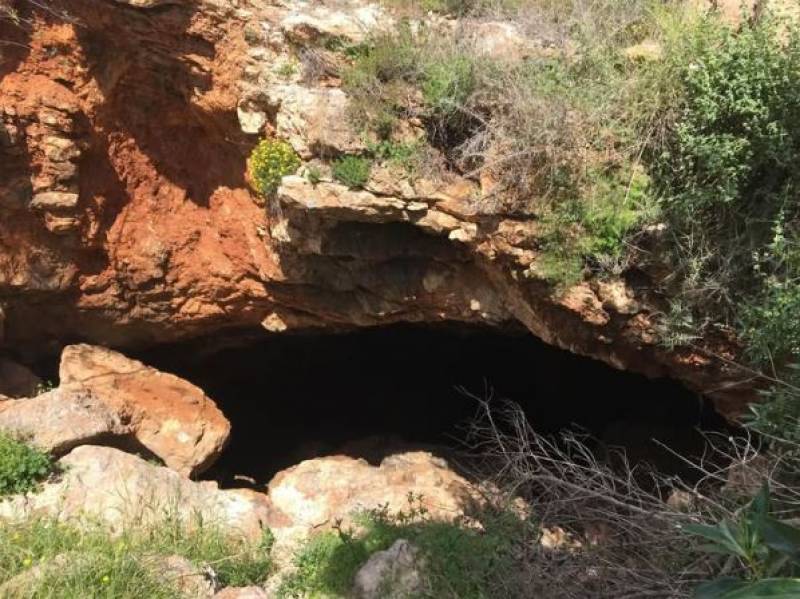 Let’s dive in to our Murcia section now, much like the ill-fated divers who ventured into Cartagena’s Cuevas del Agua last weekend. The latest victim of this aquatic labyrinth was a 37-year-old woman who failed to resurface during a late-night dive last Saturday. Her concerned companion waited at the cave’s entrance and alerted authorities. A dramatic two-hour search ensued, involving everyone from Civil Guard divers to local firefighters, but her body was recovered in the early hours of the Sunday morning, adding another name to the cave’s grim tally of casualties.
Let’s dive in to our Murcia section now, much like the ill-fated divers who ventured into Cartagena’s Cuevas del Agua last weekend. The latest victim of this aquatic labyrinth was a 37-year-old woman who failed to resurface during a late-night dive last Saturday. Her concerned companion waited at the cave’s entrance and alerted authorities. A dramatic two-hour search ensued, involving everyone from Civil Guard divers to local firefighters, but her body was recovered in the early hours of the Sunday morning, adding another name to the cave’s grim tally of casualties.That’s five lives claimed over the last 35 years by the Cuevas del Agua. Cartagena City Council, whose jurisdiction the caves fall under, have been moved by this latest fatality to start mulling over stricter regulations for divers wishing to enter the caves. It’s clear that nothing spurs the authorities on to urgent action like decades of accidents and a steadily growing body count.
To the ongoing fiasco at Portmán Bay now, where the wheels of progress turn at glacial speed, if at all. Once a scenic natural bay, Portmán – located halfway between Cartagena and the bottom of La Manga Strip – became a dump for mining waste from industrial operations that ended in 1987, and the local environment has never truly recovered.
There has been talk of regenerating the area since at least 2019, but talk is cheap and up until now nothing has been done. The latest update is that work might – just might – begin in July of this year, assuming no environmental red tape gets in the way. The Ministry of Ecological Transition has blamed everything from technical challenges to legal disputes, while locals, led by Mayor Joaquín Zapata, are losing patience.
The current plan involves sealing the waste with a “regenerated beach,” but Zapata wants the toxic sludge removed entirely. Whether this will happen before the next ice age is anyone’s guess. It’s such a shame too because it’s a beautiful area and has the potential to be a real draw for tourists and locals alike, if only it weren’t full of mining waste.
Also moving slower than expected is the Camposol notifications procedure. Mazarrón Town Council, stretched thin by staff shortages, has recruited the help of the Camposol Business Association and the newly formed Asociación de Vecinos de Camposol (AVC) to distribute the notices regarding the public takeover of Camposol’s infrastructure.
To recap, the Council is obliged to inform everyone by letter that they are going to take over control of Camposol to be able to finish the urbanisation. Things like streets and bridges and all the rest of it which has so long been neglected. Before, they had a guy going round knocking on doors to give out these notices in person, and residents had to sign to say they had received them. That guy went on sick leave and now the new plan is for residents to collect the notices themselves either at the Compusurf office or the Social Centre, depending on the street they live on.
It’s supposed to be a way of speeding up the notifications procedure, which really is just a legal prerequisite for starting the actual exciting bit of putting the urba into Council hands and finally getting stuff done. If all goes well they’ll start doing the Sector C notifications by mid-February.
 Over at Bridie Murphy’s on Camposol, formerly known as Bar Salud, there’s something worth celebrating this weekend – Nicola McArdle and her partner Declan have transformed this local watering hole into a beacon of community spirit, and the refurbished bar, staffed exclusively by women, offers a warm atmosphere where everyone feels welcome.
Over at Bridie Murphy’s on Camposol, formerly known as Bar Salud, there’s something worth celebrating this weekend – Nicola McArdle and her partner Declan have transformed this local watering hole into a beacon of community spirit, and the refurbished bar, staffed exclusively by women, offers a warm atmosphere where everyone feels welcome.This weekend marks its official reopening, complete with entertainment from Irish acts like Dermot & Sinead, and The Fabulous Bonker Boys on both Saturday and Sunday night. Go down and support your new local bar!
This weekend is also your last chance to grab one of the freebies being offered by Cartagena’s Espacio Mediterráneo shopping centre to anyone willing to download its app. You have until Sunday to snag 10 euros’ worth of food vouchers for the food court and a pair of cinema tickets, and even a 2025 calendar if you haven’t already got one.
All you need to do is download the app and go and chat with the promotional staff stationed conveniently at the shopping centre. And if you have Instagram, there’s also a chance to win more vouchers by liking posts and tagging friends.
Remember, you can always access our EVENTS DIARY for more events and activities coming up soon around the Region of Murcia:
Spain
Electricity costs in Spain have spiked to a significant high once again, with the average wholesale market price reaching 144.92 euros per megawatt-hour (MWh) at the beginning of the week – the highest daily level recorded since December 13, 2024, according to the Iberian Energy Market Operator (OMIE).
Electricity prices in Spain vary throughout the day. On Monday, the cost reached an eye-watering peak of 170 euros/MWh between 9pm and 10pm, while the lowest price only dipped to 114.41 euros/MWh occurred between 3am and 4am. These fluctuations reflect the dynamics of supply and demand, particularly during a season of increased energy consumption.
The current wallet-busting price surge is closely tied to Spain’s recent cold snap, which has driven up electricity demand. Unfortunately, this heightened demand hasn’t been balanced by renewable energy sources, as wind and solar contributions typically dip during the winter months.
This imbalance underscores the pressure on Spain’s electricity system during periods of high usage, making energy costs more unpredictable.
While 2025 has started with a notable price hike, the broader picture offers some relief. The wholesale electricity market in 2024 closed with an average annual price of 63.04 euros/MWh, marking a 28% decrease compared to 2023.
However, the steep increases seen in November and December of 2024 have sparked concerns about whether these higher costs will persist into the new year, potentially impacting consumers’ energy bills.
Spain is celebrated worldwide for its stunning coastline, boasting 638 Blue Flag beaches that set the gold standard for cleanliness, facilities and natural beauty. However, not all of its shores live up to this sterling reputation, at least according to the British press.
In stark contrast to Spain’s pristine reputation, La Línea de la Concepción in Cádiz has found itself at the wrong end of the spectrum. The Telegraph recently released its list of the 5 Worst Beaches in Southern Europe, and this particular Spanish spot made the cut.
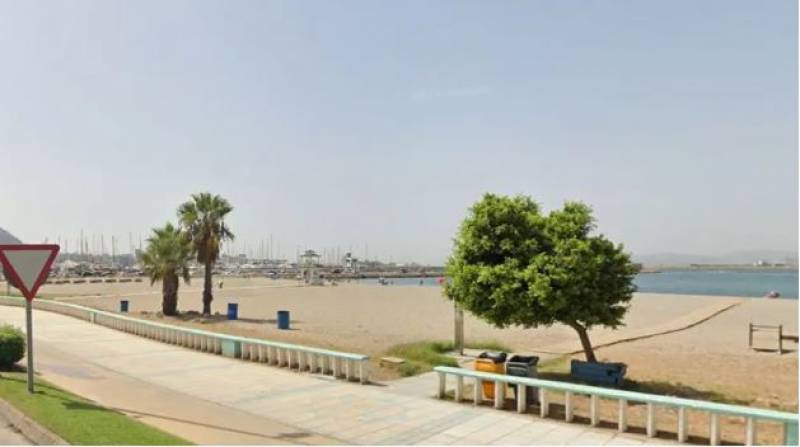 The Telegraph had little mercy for La Línea beach, which is situated directly on the border between Spain and Gibraltar. While it admits that the town boasts wide sandy stretches, it criticises the scenery: “The view of the imposing Rock, at least on one side, presents a series of high-rise tower blocks rising like vertical newsrooms along the horizon.”
The Telegraph had little mercy for La Línea beach, which is situated directly on the border between Spain and Gibraltar. While it admits that the town boasts wide sandy stretches, it criticises the scenery: “The view of the imposing Rock, at least on one side, presents a series of high-rise tower blocks rising like vertical newsrooms along the horizon.”Adding to the woes is the presence of the largest oil refinery on the Iberian Peninsula, an industrial eyesore that, paired with oil tankers dotting the Bay of Gibraltar, tarnishes the natural beauty of the area.
The critique doesn’t stop at aesthetics. According to the Telegraph, La Línea also suffers from a notorious reputation as “the capital of crime,” with rampant street crime being a particular concern.
Echoing the Telegraph’s ranking, the Mirror adds: “Street crime is a popular sport among local youths and tourists are easy targets. Stick to the centre and avoid getting too drunk, staying in groups or using taxis.”
La Línea joins the ranks of other beaches to avoid, including Laganas in Greece, Albufeira in Portugal, Kemer in Turkey and Ploce in Croatia. Has anyone at The Telegraph been to Portmán Bay?
Spain has just introduced strict new measures to combat the worst bird flu outbreak that Europe has experienced in recent memory. With cases rising sharply, the Ministry of Agriculture has mandated that chicken farmers keep their flocks indoors to minimise the risk of infection from wild birds carrying the virus.
 In recent weeks, the number of outbreaks in Spain has surged dramatically, with cases now reported in every corner of the country. The virus has also spread rapidly across neighbouring countries, including France and Portugal, while the United States recently confirmed its first human fatality from avian flu.
In recent weeks, the number of outbreaks in Spain has surged dramatically, with cases now reported in every corner of the country. The virus has also spread rapidly across neighbouring countries, including France and Portugal, while the United States recently confirmed its first human fatality from avian flu.The spread of bird flu has been exacerbated by cooler temperatures and the increased migratory movements of wild birds during this time of year. Over the last month, the disease has been linked to nearly 100 cases in wild birds across 14 European countries, 23 cases in captive birds across seven countries and 33 outbreaks in poultry across eight countries, with the majority occurring in Central Europe.
In response to these developments, Spain’s Ministry of Agriculture has elevated the national alert level and implemented a range of preventative measures to limit further outbreaks.
One of the primary restrictions includes a ban on the use of certain bird species, such as ducks, geese, swans, gulls, plovers and seabirds, as decoys in high-risk areas. These species are known to attract wild birds and could significantly increase the risk of transmission.
The Ministry has also prohibited the breeding of ducks and geese with other poultry species, and all captive-raised birds must now be kept indoors. Farmers are also required to ensure that poultry food and water supplies are shielded from contamination by wild birds. In addition, the use of untreated water from tanks or troughs accessible to wild birds is strictly forbidden. Another measure includes the suspension of all livestock shows and exhibitions involving poultry until further notice.
Since July 2024, Spain has reported around twenty cases of avian influenza. Most of these cases involved wild birds, particularly various species of seagulls, while just one case was recorded in a captive bird. Geographically, the outbreaks have been concentrated in Galicia, which reported 19 cases, with single cases also documented in Castilla y León and Catalonia.
As the virus continues to spread across Europe and temperatures drop further, the Ministry of Agriculture has emphasised the need for heightened vigilance. These measures aim to protect Spain’s poultry industry and curb the outbreak, though the coming weeks will be crucial in determining their effectiveness.
Alicante
The Spanish authorities have issued an international arrest warrant for the man suspected of murdering Belfast man John George, who disappeared while on holiday in the Costa Blanca at the end of last year. So far, the National Police have detained one person in connection with the crime, but the investigation continues.
The individual previously arrested, a 32-year-old Czech national, was released on bail on January 10 after appearing before a judge. Although he’s out on bail, he remains under investigation as an alleged accomplice in the murder. His lawyer has insisted there is no solid evidence against his client, telling local media that “not a single incriminating piece of evidence” ties him to the case.
Meanwhile, Spanish officials confirmed this week that three separate arrest warrants have now been issued for the main suspect in the killing. A spokesperson for the Valencian Community’s High Court announced that “the magistrate has today issued three orders against the alleged material author of the death of the British citizen whose body was discovered in Rojales.”
At this time, the suspect’s location remains unknown and court officials have not released information about the individual’s age or nationality.
John George disappeared on December 14, 2024. His family raised the alarm after he missed a scheduled flight home four days later. John’s brother Darren flew to Alicante to assist in the search, joined by their parents, Billy and Sharon, and sisters, Courtney and Caitlin. Around 50 friends and extended family members from Northern Ireland also travelled to Spain to help.
Tragically, John’s body was discovered on January 7 beneath overgrown lemon trees about five miles from the town of Rojales, near Torrevieja.
John’s brother, Darren, has publicly voiced his belief that John was shot for refusing to work for a criminal gang. Darren alleges that John had been trafficked from Northern Ireland to Spain, though these claims are still being investigated.
The call for Orihuela Costa to break away from Orihuela city and become its own municipality is heating up again, and this time it’s getting some backing from the Region of Murcia.
Last week, members of the Unidos por la Costa neighbourhood association sat down with representatives from Entre Dos Mares Pro Ayuntamiento at the Orihuela Chamber of Commerce Co-working building. Entre Dos Mares is advocating for La Manga to separate from Cartagena and San Javier, so both groups share common ground.

During the meeting, they talked about the challenges they both face: being physically far from their decision-making centres, not seeing enough of their tax contributions returned in local investments and struggling with inadequate public services. Add in the strain of summer tourism and unmet election promises, and you have a recipe for growing frustration.
The idea of Orihuela Costa going it alone isn’t new. Locals point out that the area generates around 50 million euros annually in municipal income, yet many feel the money isn’t being spent to improve their community. With Orihuela Town Hall located about 30 kilometres away, residents say they often feel overlooked.
Technically, Orihuela Costa qualifies for independence as it’s a distinct population centre. But there are some major roadblocks, both political and logistical.
Despite these challenges, Unidos por la Costa sees independence as the best solution to improve life in Orihuela Costa. They’re also considering other options, like forming a Minor Local Entity – a smaller administrative body – or even putting together a political group to run in the next elections and ensure the coast’s voice is heard.
This isn’t the first time the idea of independence has come up. In the last municipal elections, the Partido para el Independencia de Orihuela Costa (PIOC) won in Orihuela Costa but didn’t secure enough votes overall to earn a seat in the Orihuela City Council. Another coastal party, Claro, did win representation at one point, but its leader eventually split from the ruling coalition, accusing them of breaking their agreement.
Now, it’s not every day that baggage control uncovers something that makes you raise an eyebrow, but officers at Alicante-Elche Miguel Hernández airport recently got more than they bargained for during a routine luggage inspection.
A 63-year-old passenger, travelling from the Dominican Republic via Madrid, was arrested after her suitcase was found to contain nearly 20,000 sildenafil citrate pills – better known as the little blue kind famously known for helping people “perform” a little better in the bedroom.
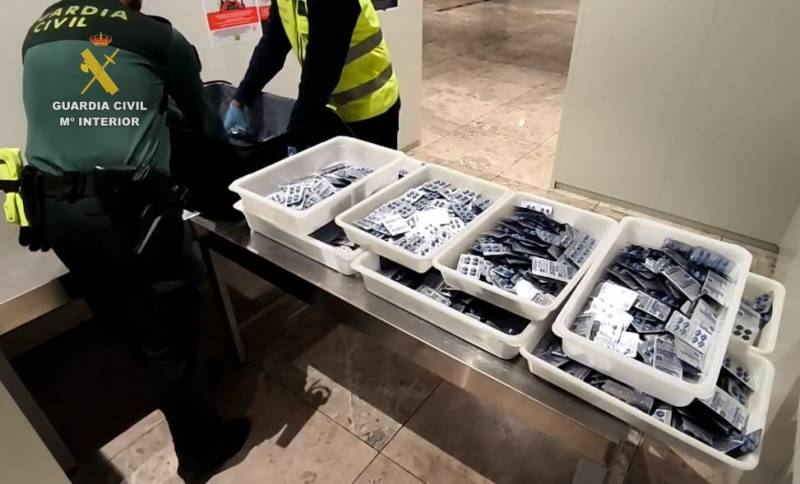 While most of us pack a toothbrush and maybe a spare jumper, this woman seemed to have an extra ambitious agenda. The stash of little blue pills weighing down her suitcase was picked up during an X-ray scan, prompting officers to take a closer look.
While most of us pack a toothbrush and maybe a spare jumper, this woman seemed to have an extra ambitious agenda. The stash of little blue pills weighing down her suitcase was picked up during an X-ray scan, prompting officers to take a closer look.The Guardia Civil arrested her on suspicion of smuggling and crimes against public health, while the pills were seized and sent off to the Pharmaceutical Inspection Services of Alicante for a closer inspection to figure out whether they were counterfeit or had been tampered with.
Starting this weekend and running until the following Sunday, February 2, there will be a Tapas Festival taking place in Benidorm as part of the Benidorm Fest, with bars and restaurants around the city offering a selection of special yummy tapas to try. Each one can be rated by the public on a scale of 1 to 5 stars just by scanning the QR code at the restaurant to find which is the best new tapa in Beni!
For other events and activities happening in the area, check out the What’s On page of Alicante Today or join the Costa Blanca What’s On and Where to Go Facebook group
Andalucía
Some news from around the various provinces of Andalucía now. First up, Seville, where a 20-year-old American student was recently discovered disoriented and cold in a park, claiming to have been drugged and raped. Municipal workers stumbled upon the woman in the early hours of last Friday morning and promptly alerted the authorities.
While police investigations are underway, the victim’s testimony remains fragmented, allegedly due to chemical substances she was unwittingly administered that have clouded her memory.
Another US citizen was found dead this week in that other major Andalusian city, Málaga. The lifeless body of the 80-year-old American tourist was discovered in a holiday apartment in the city centre on Tuesday, a grim end to what was likely meant to be a relaxed escape.
Witnesses report hearing unsettling screams and bangs on Monday evening, with one neighbour describing a man crying out “as if he was being killed”. She peered out of her window, saw nothing, and carried on as she was, until the following afternoon when the police arrived.
The man was found with a head injury, and his belongings were all missing. For now, the authorities have offered little more than the bare facts, leaving plenty of room for speculation.
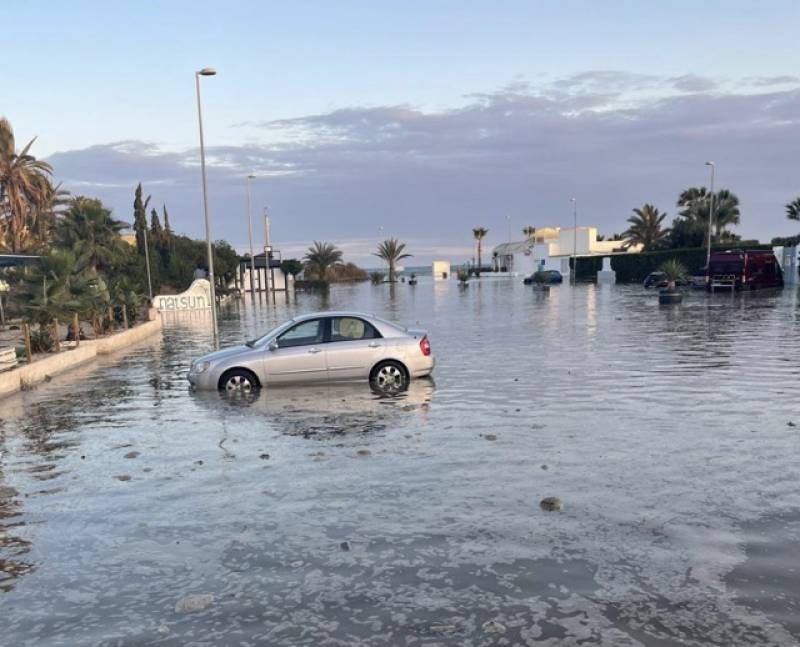 To natural calamities now, this time in the town of Vera Playa over in Almería province, where streets were washed away by a maritime storm. Floodwaters surged through the coastal town, submerging homes, stranding vehicles and leaving the town’s mayor, Alfonso García, spitting nails.
To natural calamities now, this time in the town of Vera Playa over in Almería province, where streets were washed away by a maritime storm. Floodwaters surged through the coastal town, submerging homes, stranding vehicles and leaving the town’s mayor, Alfonso García, spitting nails.He described the flooding as a predictable disaster. This is not the first time this has happened in Vera, and García blamed coastal erosion and government inaction. His demand for breakwaters, a structural fix to stop the waves from erasing the town, is as old as the problem itself, but this has gone unheard and unaddressed for years.
Vera’s latest attempt to fight nature, a 400,000-euro sand replacement project, was promptly undone by the storm, proving once again that throwing money at the sea is an exercise in futility.
Talking of things washing up on the shore, the town of Rota in Cádiz – probably best known for the giant US military base there – saw a massive blue whale come ashore at the Playa del Chorrillo beach.
The enormous marine mammal drifted in dead and decomposing this Monday, creating quite the spectacle for locals who likely expected seashells, not cetaceans, on their morning walk.
Authorities had been alerted days earlier after spotting the whale floating in the water, but by the time it landed, it was sadly well past saving. Workers wasted no time dismantling the carcass for disposal, while, as always in these cases, a study will have to be carried out as to how the animal died and why it ended up stranded on the beach.
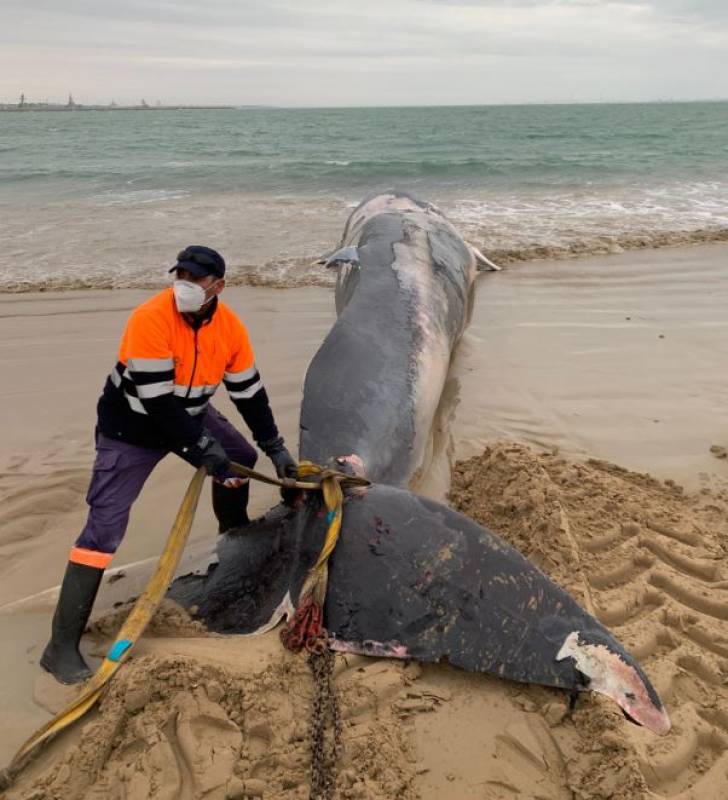
You may have missed…
- Plastic bottles change again in 2025: After attached bottle caps, EU introduces another new rule!
Just as we’ve all become used to non-removable caps on our plastic bottles, there’s a new change coming for 2025; the European Union, which rolled out the tethered cap rule in July last year, is now introducing another regulation for plastic bottles. - All about central heating in southern Spain.
Got questions about oil and gas central heating systems for homes in the south of Spain? Here’s where to go for all the right answers… - How Valencia is restricting holiday lets and why it means Costa Blanca vacations are about to get a lot more expensive.
New laws restricting the activities of short-term rental properties could have a serious effect on the Valencian economy, warns Technical Architect John Kirby. - Thinking of installing solar in 2025? Here’s what you need to know.
Solar energy is rapidly becoming the go-to solution for homeowners in Spain looking to save money, reduce their carbon footprint and enjoy a more sustainable lifestyle. If you’re considering installing solar panels in 2025, now could be the perfect time to make the switch! - British tourist swindled out of £16,000 on Benidorm holiday.
What was supposed to be a relaxing holiday in Benidorm turned into a financial nightmare for one British tourist when two clever con artists swindled him out of a whopping £16,000.
That’s all for this week. Thanks for reading and we’ll be back next week with more.
Bye!
Contact Murcia Today: Editorial 000 000 000 /
Office 000 000 000


















